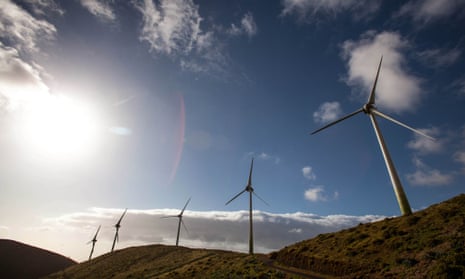If we needed a reminder of how politics and energy are inextricably linked, the Ukraine crisis has done us all a timely service. The price and supply of gas is rapidly becoming a major Russian weapon against its neighbour, and by extension, its European supporters.
Nearly a third of all Europe’s natural gas comes from Russia, over half of which flows through Ukrainian pipelines. When Gazprom stopped pumping gas to Ukraine during past winter disputes, countries from Greece to Austria and Italy saw their supplies fall. Factories and schools were forced to shut down in those countries hardest hit.
It is clear, as tensions over Ukraine rise, such disruption in Europe may occur again. But what’s different is that president Putin is making little pretence that this time it would again be an accidental and regrettable consequence of a price dispute between Russia and Ukraine. He seems determined to send a message that the effect of sanctions need not all be one way.
The timing of the crisis, and the past warm winter which has left plenty of gas in storage, means there will be no major problems unless it worsens or drags on unresolved until the end of the year. But the Russian president may be doing us a favour if his threats lead to a thorough re-appraisal of the challenge and costs of energy security in Europe.
For too long this debate has been dominated by those who believe energy is just a market like any other, and all efforts should be focused on cutting prices. This is nonsense. Energy is not just another commodity but the lifeblood of an economy. No responsible government can step away from a market which is at the heart of a nation’s security and prosperity. Security of supply as well as affordability are critical. So, too, are environmental impact and public acceptance.
The UK, unlike much of Europe, is fortunate at the moment not to rely on gas from Russia. But as North Sea production falls, energy imports are going to increase strongly with liquefied natural gas from the Middle East a major solution to the shortfall. However, this region has an even more worrying record of tensions and conflict than the former Soviet Union.
The case has never been more compelling that the UK and Europe must diversify its energy supplies, reducing our reliance on volatile areas and prices. The latest report from the Intergovernmental Panel on Climate Change has also underlined the critical importance of doing this in a way which moves us quickly away from fossil fuels.
Europe faces three key challenges in determining its future energy policy: ensuring an affordable supply, combatting climate change and increasing energy independence. Renewable energy can help Europe meet all three of these goals.
On price, mature renewable technologies such as solar and onshore wind achieve nearly the same cost per megawatt hour as new plants generating electricity from traditional sources. And since the fuel itself is free, the major cost involved in renewable power plants is the upfront investment, after which the low and largely fixed ongoing maintenance bill ensures a long-term predictable cost of energy supply.
On climate change, Europe has already demonstrated its commitment through binding emissions targets. But achieving these can’t be done without a significant increase in renewables investment.
On security, increasing the share of renewables in European power provision would reduce dependence on imported fossil fuels, often supplied from conflict-ridden parts of the world. This would also help improve the trade deficits in European countries which continue to face financial challenges.
Since wind and sun are not available 100% of the time, it is true that any region deriving a large proportion of its power from renewables will still need back-up power. Natural gas plants, fed from storage facilities already in place, can guarantee continuous supply. Using gas in this way would cut dependency on imported fuel while also reducing carbon emissions.
In Europe, we have a large industry of successful and enterprising renewable energy businesses which are ready to rise to the challenge of powering homes and businesses from clean and sustainable sources. But politicians are being pressed by a coalition of opponents of renewable energy to ignore this potential.
In the UK, the Conservatives have already given the strong hint that an end to new onshore wind development may be a central plank in their election manifesto, despite this being the most affordable renewable technology in the country today. Instead, too much faith is being put in offshore wind, which receives over 50% more government subsidy than onshore wind, and shale gas, despite fracking not expected to be able to meet substantial energy needs in the UK this decade.
It is about time that we had a cool assessment of how the UK and Europe are going to power their economies in the coming years. Russia, of course, needs the revenues from European gas sales as much as Europe needs its gas. So a substantial cut-off of Russian gas supplies in the near to medium-term future is unlikely. But we have been given a wake-up call that we would be foolish to ignore.
We should be grateful to president Putin for bringing energy security back to the top of the political agenda in Europe. But it is up to us to ensure we understand and act on the long-term threat. And that is certainly not by turning our backs on renewable energy, no matter how persistent or loud the voices against it.


